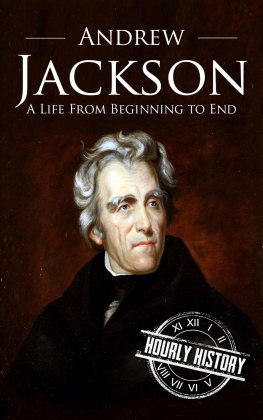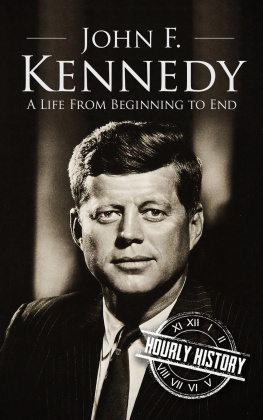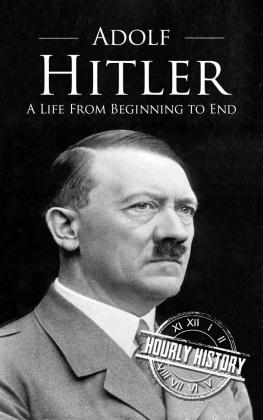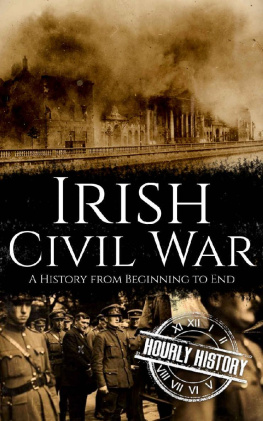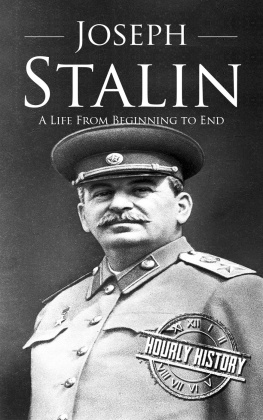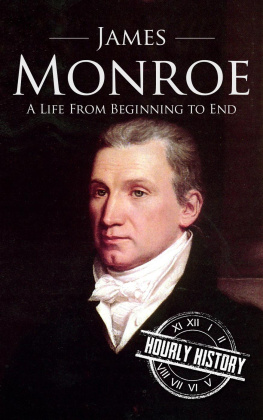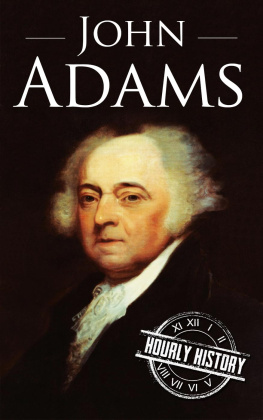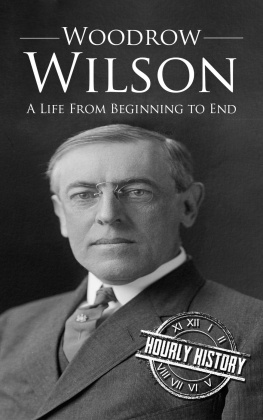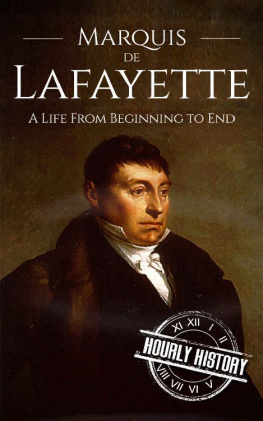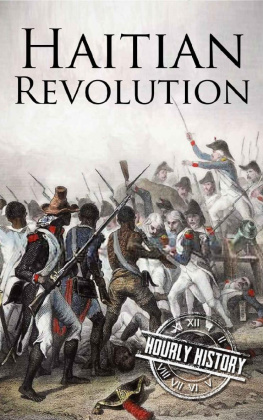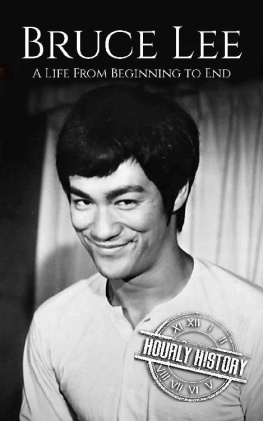Introduction
A ndrew Jackson may have been the first American president without an impressive pedigree, but hes also the first White House inhabitant to prove that the destiny of the nation would no longer be the exclusive province of the blue-blooded elite. Jackson was no Founding Father, but he was just as fiercely dedicated to the concepts of freedom as any member of that first generation of American patriots. He was a president whose rise to power betokened the courage of his immigrant parents and the dynamic new direction of a nation which was willing, en masse , to pull up stakes and venture into the unknown in order to seek a better life for themselves and their families. Jackson was the first president who hailed from neither Massachusetts nor Virginia, but instead from the frontier west of Tennessee. Additionally, when faced with the threat of secession, Jackson declared that the Union must be preserved.
In his lifetime, he was a controversial figure. In modern times, his reputation has come under scrutiny because he was so much a man of his era. He supported states rights and favored the expansion of slavery in the western territories that would eventually become states. He lived in a century when Native Americans were the enemy, and he treated them accordingly. But its constricting to view Andrew Jackson in those rigid terms, regardless of how his actions seem to our modern eyes. He changed the course of American history and served as president when the nation was undergoing its raw adolescence. Some of his decisions were astute, others were ruthless, but he was not afraid to act on his convictions. His belief that the common people were the ones who should decide a nations course came out of his own experience and his own convictions; at a time when the common people were often regarded as the rabble, his view was revolutionary.
The Birth of a Legend
Remember, remember always, that all of us, and you and I especially, are descended from immigrants and revolutionists.
Franklin D. Roosevelt
T he president who was known as Old Hickory had no choice but to be tough. Born on March 15, 1767, to Scots-Irish immigrants from Ireland, who had arrived with sons Hugh and Robert to settle in the Waxhaws region between the Carolinas, Jackson was the first president whose parents were immigrants. The area where the Jacksons lived was in a remote area that hadnt been surveyed. He may have been born at an uncles plantation in Lancaster County, South Carolina, or he may have been born in the home of another uncle who lived in North Carolina. Jackson was born just when Tennessee was beginning to be settled as immigrants from Europe, who probably landed in Philadelphia, crossed the Appalachian Mountains to find homes in a region where land was fertile, and there was hope for a better life.
What Tennessee in its frontier days did not offer was an easy life. The people who came to Tennessee did not travel with a wealth of possessions. They possessed little and knew how to manage with what they had. In order to eat, they had to grow their food or hunt it. They had come to conquer the land, but Tennessee did not readily surrender to their efforts as they chopped down the trees and cleared the land for agriculture. The houses were rudimentary, with the family sharing common living space. But they had come not only for prosperity but freedom, and they were willing to work hard in order to raise children who would grow up in liberty.
To the Native American tribes who already occupied the lands, the European settlers were invaders. By settling in Tennessee, the immigrants were violating the English Proclamation of 1763, which denied Americans and immigrants the right to build settlements west of the Appalachian Mountains. As the years passed, Cherokee rights to their own land would diminish. As an adult, Andrew Jackson would play a role in that loss of territory.
It was a generation which knew tragedy. Andrew Jackson was fatherless within three weeks of his birth following the death of the senior Andrew Jackson, who died in an accident when he was 29 years old. Possibly, Andrew Jackson entered the world during the time that his mother was returning home after the burial of his father. But he did not grow up in isolation, as there were numerous Jackson relatives in the area, as it was home to many farmers of Scots-Irish heritage.
The family was poor, and education was not a priority during hard times. His mother had hopes that her young son would become a Presbyterian minister when he was old enough to choose a career, but she must have had to accept the fact that Andrew, with his volatile nature and eagerness to fight, was not destined for the clergy. Andrew was tall, lean, and agile, with red hair and the freckles that go with them, as well as what would become his legendary temper. He was quick, even as a boy, to resort to violence to solve a problem. Throughout his life, he resorted to action rather than thought, with a fearless energy to do what needed to be done.
The American Revolution was in its final years by the time Jackson joined the local militia as a courier at the age of 13. He was captured, along with his brother Robert, by the British when the army headed south and invaded the Carolinas in 1781. Brother Hugh, the eldest of the Jackson sons, had also joined the American cause, perishing at the Battle of Stono Ferry from heatstroke.
The temper that would rule Andrew Jackson throughout his life was just as fierce in his youth: when a British officer ordered the boy to polish the redcoats boots, Jackson refused. The officer used his sword on Jackson, cutting a gash into his face that sliced the skin all the way to the bone, leaving him with a scar for the rest of his life as a permanent reminder of his reason for hating the British.
While prisoners of the British, both brothers
contracted smallpox; during their captivity, the surviving brothers were nearly starved. A prisoner exchange, arranged by their mother, Elizabeth Jackson, released Robert and Andrew from the tender ministrations of the British. The boys had to travel 45 miles to get back home, a journey that they made in pouring rain. Robert died two days after they arrived home; Andrew survived, but his recovery took time. Elizabeth Jackson, believing that Robert would recover, had gone to Charleston to do her part for the American war effort by taking care of the soldiers who had been wounded. But she died of cholera soon after son Roberts death, leaving Jackson an orphan at age 14. The hardships which he and his family endured left him with a virulent antipathy toward the British, an emotion which would come to the fore again when he was an adult fighting the former foe in the War of 1812. For Jackson, the price of American liberty came at great cost.
His uncles took him in when he was left without a mother or brothers. Jackson inherited a small bequest from his grandfather in Ireland, but the money didnt last long. For a time, Jackson made a living as a schoolteacher, although his education had been limited and his affinity for study minimal. Mostly self-taught, as several others in the presidential office would be (most notably Abraham Lincoln), Jackson read the Bible, and as an adult was fond of reading newspapers and the classics. When he was 17, he began the study of law, apprenticing with local lawyers in Salisbury, North Carolina. Three years later, he received a license to practice law in the North Carolina backcountry. Money was tight, and Jackson worked in the general store to supplement his income. As a six-foot-tall redhead, Jackson stood out in a crowd, but his personality always garnered attention. He enjoyed dancing and gambling and was no stranger to good times in local taverns.

